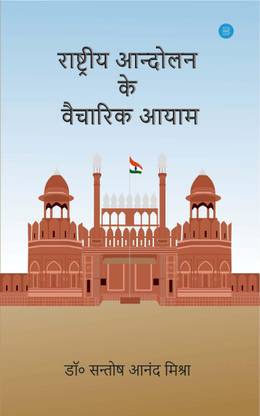Bipin Chandra Pal (7 November 1858 – 20 May 1932)
Introduction
India's struggle for independence passed through various phases and ideologies. While Mahatma Gandhi’s non-violent movements stirred public consciousness, the revolutionary fervor of the Extremist leaders infused nationalism with intensity and courage. Among these leaders, Bipin Chandra Pal occupied a place of great significance. He was not only a fierce freedom fighter but also a conscious modern thinker, a social reformer, a fiery orator, and a fearless journalist.
Early Life
- Full Name: Bipin Chandra Pal
- Born: 7 November 1858, Poil, Sylhet, Bengal (now in Bangladesh)
- Father: Ramchandra Pal (a Sanskrit scholar influenced by Vaishnavism)
- Education: Presidency College, Calcutta (incomplete); largely self-taught
- Died: 20 May 1932, Kolkata
Bipin Chandra Pal was born into a middle-class Bengali Brahmin family. From a young age, he was deeply inclined toward learning, logic, and independent thinking. Though raised in the Vaishnava tradition, he was a staunch opponent of blind faith and orthodoxy.
Political Journey
(a) Role in the Indian National Congress
Bipin Chandra Pal joined the Indian National Congress in 1886. Initially, he was aligned with the Moderates, but as British repression intensified, he evolved into a staunch nationalist.
(b) Partition of Bengal (1905)
The 1905 partition of Bengal pushed him firmly toward radical nationalism. He became a strong proponent of the Swadeshi movement, national education, and self-reliance.
(c) The Lal-Bal-Pal Triumvirate
Together with Bal Gangadhar Tilak and Lala Lajpat Rai, Bipin Chandra Pal transformed Indian politics from moderate liberalism to assertive nationalism. The trio directly challenged British authority.
(d) Critique of Colonial Rule
He believed:
“British rule is hollowing out India’s social, cultural, and economic fabric. No nation can attain self-respect without independence.”
Ideology and Philosophy
(a) Concept of Nationalism
Pal’s idea of nationalism went beyond political freedom. It included economic self-sufficiency, Indianized education, social awakening, and personal strength.
(b) Social Reformer
- Opposed child marriage
- Supported widow remarriage
- Rejected caste discrimination
- Advocated for women’s education and empowerment
Like Acharya Atreya, he believed India needed not only political change but a cultural renaissance.
Journalism and Literary Contributions
Bipin Chandra Pal saw journalism as a powerful tool for public awakening. He edited and contributed to several publications:
- New India (English)
- Bangabasi
- Swarajya
- Tribhuvan Mitra
His writings reflect clarity, courage, and reason. He fiercely criticized British colonial policies.
Famous Quote:
“A power that enslaves you cannot ever be concerned for your welfare.”
International Perspective
Pal’s vision transcended national borders. He traveled to England and studied Western political and social systems. He compared European nationalism with India’s situation and believed that India must embrace scientific thought, democratic values, and inner strength.
Differences with Gandhi
Bipin Chandra Pal was a critic of Gandhi’s spiritual politics and non-violence. He considered Gandhi’s spinning wheel and non-cooperation movements impractical. According to Pal, India needed not just political change, but also industrial and social revolutions.
Final Years and Death
In his later years, Pal distanced himself from active politics but continued his writing and social reform work. He passed away on 20 May 1932.
Legacy and Importance
- A pioneer who laid the ideological foundation for Indian nationalism
- Key figure in the radical nationalist movement alongside Tilak and Lajpat Rai
- A journalist who transformed journalism into a tool of national service
- Advocate of modernity and progressive social reform
Jawaharlal Nehru once described him as “a great thinker of India.”
Conclusion
Bipin Chandra Pal was a visionary of modern India who saw freedom not just as a political goal but as a journey of personal, social, and national regeneration. He was a warrior of ideas whose words and writings shook the British throne. His life remains an inspiration to future generations, emphasizing that true freedom encompasses self-awareness, self-reliance, and national pride.












0 Comments
Thank you